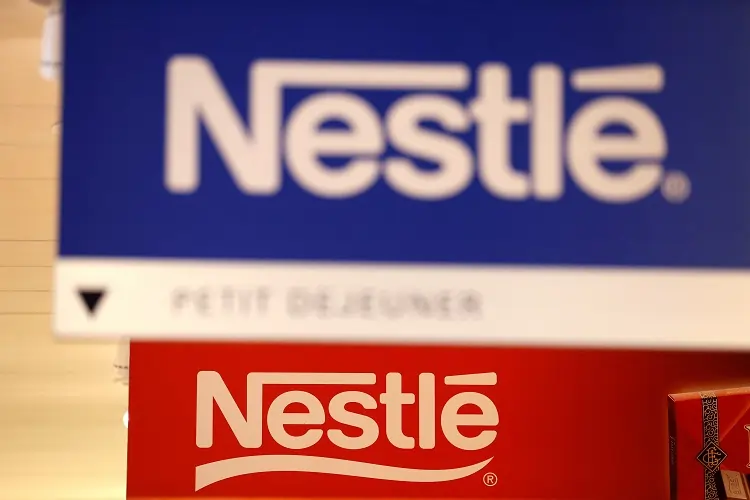
By John Revill and Richa Naidu
ZURICH/LONDON (Reuters) – Nestle is replacing CEO Mark Schneider with company veteran Laurent Freixe, the Swiss food group said on Thursday, marking a change of leadership as it faces a challenge to grow sales.
Schneider has decided to step down as CEO and a member of the board of directors after eight years leading the world’s biggest packaged food company.
The 58-year-old German moved the Swiss firm away from its decades-old category-led structure in the wake of the COVID-19 pandemic, when the company enjoyed a boom as people bought its food and drinks to eat at home during lockdowns.
But it has struggled recently, last month cutting its full-year sales outlook and saying it had to slow its price hikes as cash-strapped customers became more price conscious.
Under Schneider’s leadership, Nestle’s shares hit their highest level in January 2022, before hitting a downward trajectory since May 2023.
The executive appeared to lose investor confidence, as the maker of KitKat chocolate bars and Nescafe instant coffee sharply underperformed rivals like Unilever.
Where Unilever, Danone and other food makers have in recent quarters been able to lower some product prices and drive sales volumes, Nestle has struggled to regain shopper loyalty that it lost in price hikes it had to make after the pandemic and Russia’s invasion of Ukraine.
When asked how his strategy would differ from Schneider’s, Freixe told journalists that Nestle, a company with more than 2,000 brands, spanning dog food to water and infant nutrition – would focus on its “core” activities.
“I will put a lot of focus on the core. I won’t exclude, of course, M&A,” Freixe said. “But…the big message is focus on the core.”
Freixe, whose new role will be effective on Sept. 1, joined the company in France in 1986, going on to lead Nestle’s European business during the 2008 financial crisis.
He then headed Nestle’s Americas unit and, eventually led the Latin America business from 2022 where he oversaw strong growth in recent years.
He was an unsuccessful contender for the CEO post in 2016, said Jefferies analyst David Hayes.
“After an increasingly difficult year, it’s not a total surprise to see a CEO change,” said Hayes.
The 62-year-old Freixe, a popular figure at Nestle’s HQ in Vevey, next to Lake Geneva, has already started work in his new role, but knows it will take time to rebuild market share and increase sales volumes in a tough market.
“There will always be challenges, but we have unparalleled strengths,” he said. “We can strategically position Nestle to lead and win everywhere we operate.”
As well as his inside knowledge and wide network within Nestle, Freixe’s marketing and sales expertise was highlighted by analysts.
“He’s a sales and marketing guy with a real passion for the products,” said Jean-Philippe Bertschy at Bank Vontobel.
“If you look at successful food companies lately, like Lindt and Danone among others, they all have marketing and sales people as CEO.”
The switch to Freixe also marks a return to the Nestle’s normal practice of promoting chief executives from within the company.
Schneider, the former boss of German healthcare company Fresenius, was its first external CEO in nearly a century.
Kepler Cheuvreux analyst Jon Cox described Freixe as a “very safe pair of hands” with the executive possibly deciding whether to prune weaker businesses.
Freixe’s in-tray could include turning around Nestle’s underperforming health science unit, while its frozen food business in North America, where its brands include Lean Cuisine and DiGiorno, has also struggled.
Chairman Paul Bulcke, said Nestle had not considered an outside candidate before choosing Freixe.
“Having Laurent, there was no need to look outside,” Bulcke said.
(Reporting by John Revill, additional reporting by Jessica DiNapoli; Editing by Marguerita Choy and Stephen Coates)

